Resources
A brain injury can result in devastating changes for the person as well as for their family and friends. Sometimes these changes can affect how the person communicates. They may speak too much or not enough, they may have trouble staying on a topic or not be able to think of what to say.
Treatment can improve the communication of the person with brain injury. However, families and friends are often left wondering what they can do to help.
At the ABI Communication Lab we develop evidence-based resources aimed to help people with brain injury, clincians, families and friends find the best ways to interact during everyday conversations.
convers-ABI-lity
COMING SOON!
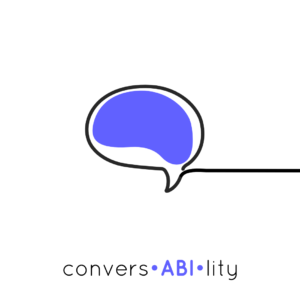
Work together to improve conversations after brain injury
This online program aims for people with brain injury and their carers to improve their conversations together, supported by a speech pathologist.
- Progress through seven modules about conversations after brain injury
- Record and reflect on conversations to learn and see your progress
- Get feedback from your speech pathologist as you practise
- Connect to videocalls with your speech pathologist
We will soon be making this program available. If you are a person with brain injury interested in participating in the program, or a speech pathologist interested in using the program, complete this form to register your interest.
social-ABI-lity
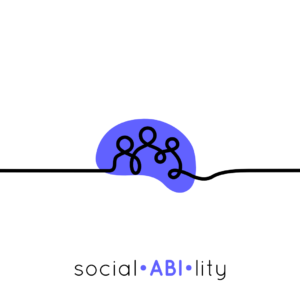
Learn how to use social media safely and successfully after a brain injury
This free self-guided program is for people with brain injury. It can be completed together with family members, friends, support workers, or clinicians.
- Make a plan for using social media in a way that suits you
- Learn how to stay safe when using social media
- Explore using social media to connect with others
- Gain a certificate of completion
Click here for more information and to sign up.
interact-ABI-lity
Learn how to interact successfully with people who have a brain injury
This free self-guided program is for family members, friends, support workers, and professionals working in brain injury.
- Hear from people with a brain injury and their family members
- Learn about communication changes
- Learn how to support people with their communication
- Gain a certificate of completion
Click here for more information and to sign up.
TBI Express

Communication training program for traumatic brain injuries
TBI Express is a communication-training program for people with traumatic brain injury, their families, friends and carers.
TBIconneCT
![]()
Resources for clinicians and families
TBIconneCT is a program designed to help people with traumatic brain injury and their family members, friends or carers have better conversations together.
Social Brain Toolkit
Resources for people with brain injury, families, and clinicians
The Social Brain Toolkit project has developed new online tools to help improve everyday interactions between people with a brain injury and their communication partners.
The Social Brain Toolkit is an evidence-based suite of three interventions; convers-ABI-lity, social-ABI-lity and interact-ABI-lity.
These three tools aim to improve communication after acquired brain injury.
The tools can be used individually, or in combination.
This project was supported by funding from icare NSW, and was conducted in partnership with the University of Technology Sydney, Brain Injury Australia and Changineers.
Centre for Research Excellence in Aphasia Recovery and Rehabilitation
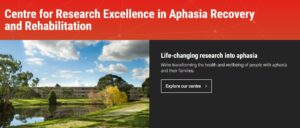
Resources for people living with aphasia, family members, carers and healthcare professionals
The Aphasia CRE aims to transform the health and wellbeing of people with aphasia and their families through research that leads to enhanced, cost-effective and sustainable interdisciplinary aphasia rehabilitation and community services.
Their Resources page provides helpful resources and links to organisations (Australian & International) that can provide you with additional information and support.
icare Brain Injury Psychiatry Program (iBIPP)
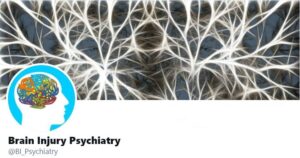
More psychiatry support for people with brain injury
The icare Brain Injury Psychiatry program (iBIPP), funded by icare Foundation, was set up in 2019 to build capacity of psychiatrists and clinicians treating people with brain injuries and mental health conditions.
Visit our online resource centre and get regular updates by following @BI_Psychiatry on Twitter.
TBIBank Grand Rounds
![]()
Educational resources for students and clinicians
TBI Bank Grand Rounds is a new educational resource about cognitive-communication disorders after TBI.
To find out more about these resources and how to access them, please contact Dr Elise Bogart on elise.bogart@sydney.edu.au.
speechBITE
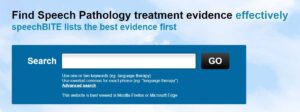
Speech Pathology Database for Best Interventions and Treatment Efficacy
speechBITE is a database of intervention studies across the scope of speech pathology practice.
Sign up here and speechBITE will send you monthly updates on the newest references added to the speechBITE database.
ASSBI
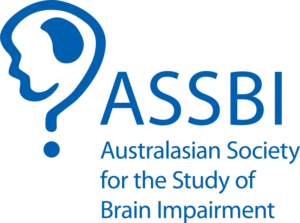
Resources for clinicians and researchers
The Australasian Society for the Study of Brain Impairment (ASSBI) is a multidisciplinary society dedicated to improving the quality of life of people with brain impairment and their families.
Their Resources webpage provides access to resources for clinicians and researchers working in the field of brain impairment.
Moving Ahead CRE

Resources for clinicians
Moving Ahead is a Centre for Research Excellence (CRE) in Brain Recovery working towards improving outcomes for people after traumatic brain injury (TBI).
Their Resource Centre provides resources for clinicians working in the field of TBI.
Aphasia Therapy Finder
 Loading...
Loading...
Resources for Clinicians
Aphasia Therapy Finder is a database of evidence-based aphasia therapies providing access to therapy descriptions, evidence summaries and resources.
Click the ‘About Us’ Link on their website for additional information on how the database can be used.
Voice Banking Community of Practice
 Loading...
Loading...
Resources for Clinicians
The ‘Voice Banking Community of Practice’ is most relevant for people working with AAC users who use speech generating devices. The group offers webinars with expert speakers and demonstrations of the latest voice-banking related technological advancements.
Click the ‘download’ link for additional information on how to join.
Resources for Brain Injury Information and Advocacy
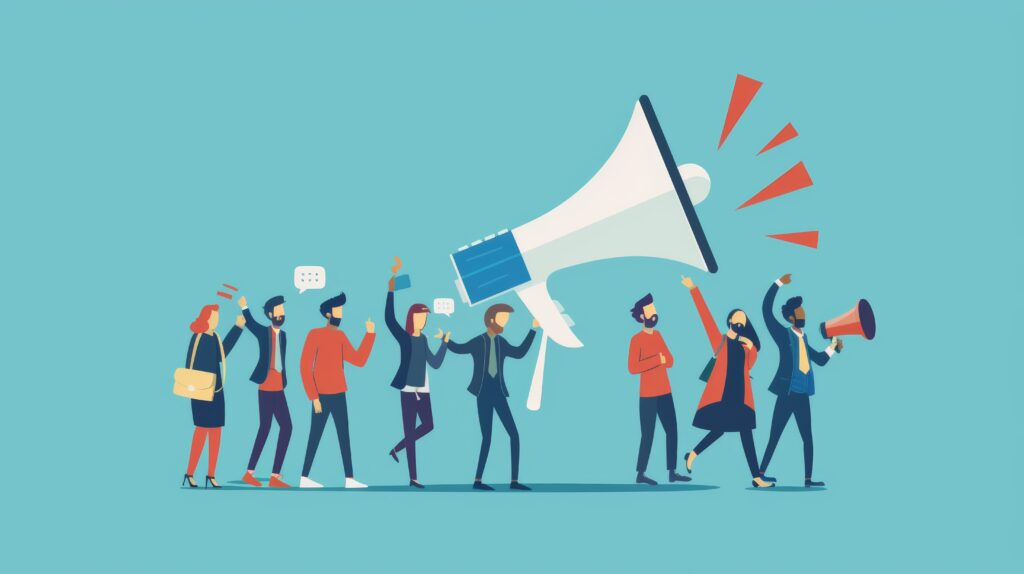
Speech pathology students at the University of Sydney are developing information and advocacy resources to share useful information and evidence about acquired brain injury.
Have a look at our growing library of evidence briefings on a range of topics relating to brain injury.


